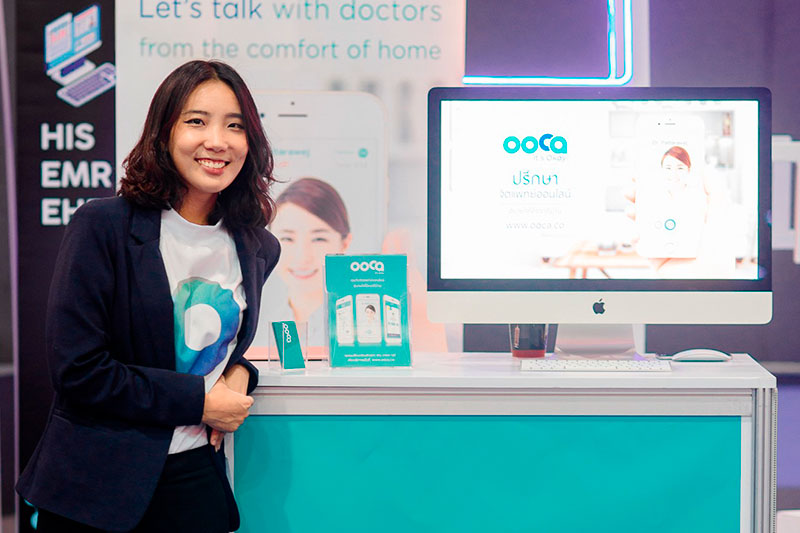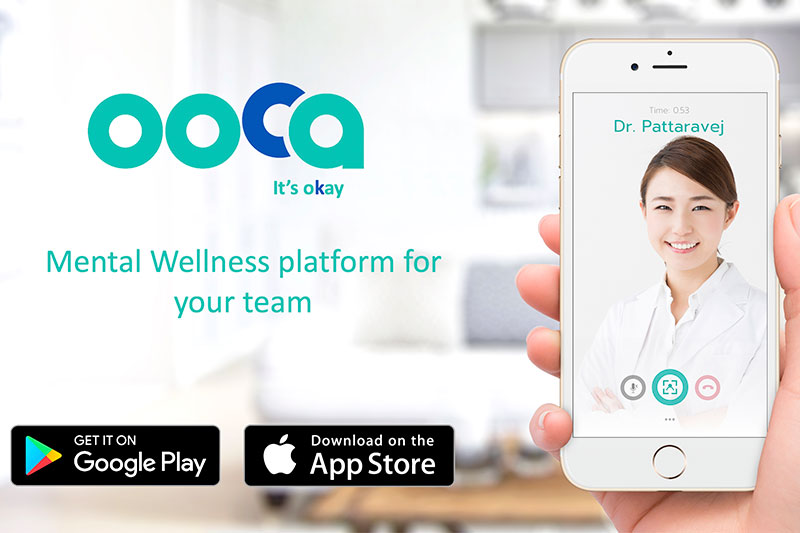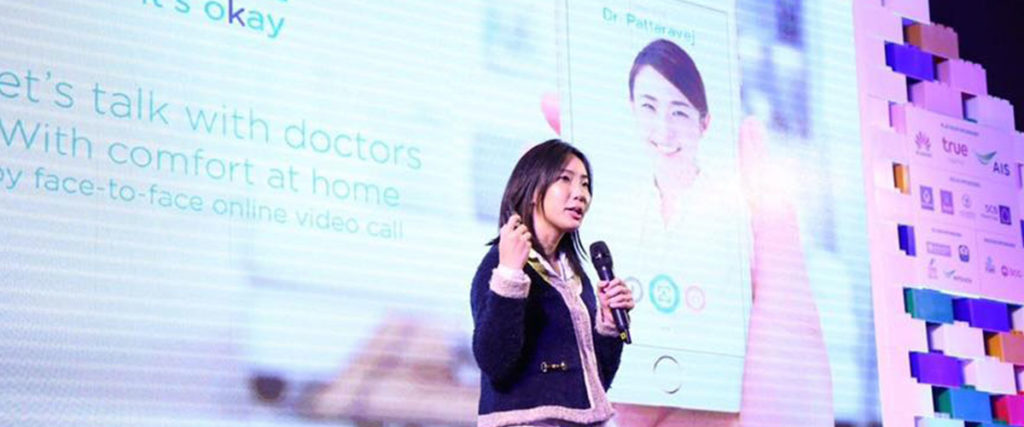Having built Ooca, Thailand’s first mental health app, founder Kanpassorn Suriyasangpetch opens up about how she’s making healthcare more accessible via online video conferencing, using tech to fight stigma along the way.
According to the Institute of Health Metrics and Evaluation, about 1 in 10 people around the world are suffering from some sort of mental illness. In Thailand, the issue is even more prevalent in a country that suffers more suicides each year than any other ASEAN country – nearly 10,000. This is where Ooca hopes to come in. Launched in 2017 by Kanpassorn Suriyasangpetch, the platform connects its 63,000 users with qualified local psychiatrists in one easy click, bypassing the hurdles of logistics, stigma, judgement and cost that so often stand in the way of help. She told us her story.

Suriyasangpetch, known to her friends as Eix, dreamt up Ooca because of her own experiences. “I feel like proper healthcare in Thailand is hugely inaccessible,” she explains. “Whilst I was studying, I was diagnosed with Adjustment Disorder. At the time, I feared that my professors would have a negative impression of me if I sought help from the medical school that was directly under the same university, so I chose to go to one outside of my school. That was the beginning of my experience with psychiatrists and psychologists.” When she graduated, the obstacles standing between her and adequate mental healthcare loomed even larger. “I was working as a dentist in the Thai Army while seeing a psychiatrist in Bangkok. I had to travel six hours by car to get the help I needed. There was still a lot of stigma against the issue as well,” she remembers. “Mental healthcare is important. It helped me out of a dark place and that’s why I have an interest in solving inaccessibility and stigma with technology.”
You might also like Developing a Therapist Chatbot: Using Tech to Help Troubled Teens

Ooca, which offers online counselling through video conferencing, offers a selection of local psychologists and psychiatrists available for one-on-one sessions conducted online. Users can either pick their own professional to link up with or be matched by the site. “From there, they can connect through a video call – even right away if the doctor is available.” They provide 30-minute or 60-minute counselling sessions with a psychologist or psychiatrist conducted in Thai, which start at THB 1000 – all on a platform geared to be as user-friendly as possible. “They can change to anyone they like if they want and they don’t have to use their real name if they don’t want to. It’s convenient. They can get help on the spot and feel secure on the platform,” says Eix. “I don’t label people that come on to the platform as ‘patients’ because those who may not need medication, but need proper professional advice, can also come on. I want it to look and feel trustworthy so that everyone feels relaxed about opening up.” In addition to connecting with individuals, Ooca is also working with businesses such as the Bank of Thailand and Chevron to provide mental health support for their employees. Currently, she is focused on Thailand, but Eix has her eyes set on the international market. “We would like to scale to other countries, bring in local providers from elsewhere, and introduce e-prescriptions in the third quarter of this year. It’s about covering more modalities and more types of intervention, making it easier for people to access medicine.”

Apart from combating the stigma attached to mental health, Eix sees the hardest part of her job as getting investors and other people to understand the urgency of the situation and what Ooca brings to the table. “The hardest part is running it as a startup. Working in health tech is very challenging. Not many investors understand the urgency of it. It takes at least three goes to try to change people’s behaviour towards something health-related, so what is hard is trying to make it a proper business and survive investment rounds. For me, coming in as a healthcare professional and turning myself into a business person has been really difficult.”
Since starting the platform four years ago, Eix has since laid down her dental tools to pursue Ooca full-time. In that time, she has noticed shifting perspectives in Thai society. “In my opinion, the older generation tends to not be very understanding and are reluctant to admit they want to speak to someone,” she explains. “But, nowadays, mental health is most definitely being integrated into pop culture. In Thailand, we are starting to see a lot more TV shows, podcasts, and online news articles focusing on it.” However, there’s still a long way to go. “The situation is very serious. The earliest thing that anyone can try to do is open up to someone you trust. If you do actually need professional help, it’s something that you will not regret. Some people will try to push the idea that if you are strong enough, if you are capable of handling yourself, it will never happen to you. But, the rate of change is actually accelerating very quickly and this is finally being recognised as something that needs to be solved.”
Related Articles
One Man’s Journey: Changing How We Talk About Men’s Mental Health
Award-Winning App Developer Uses Gamification to Level Up Your Health
But First, No More Stigma: Curing Hong Kong’s Mental Illness Epidemic





